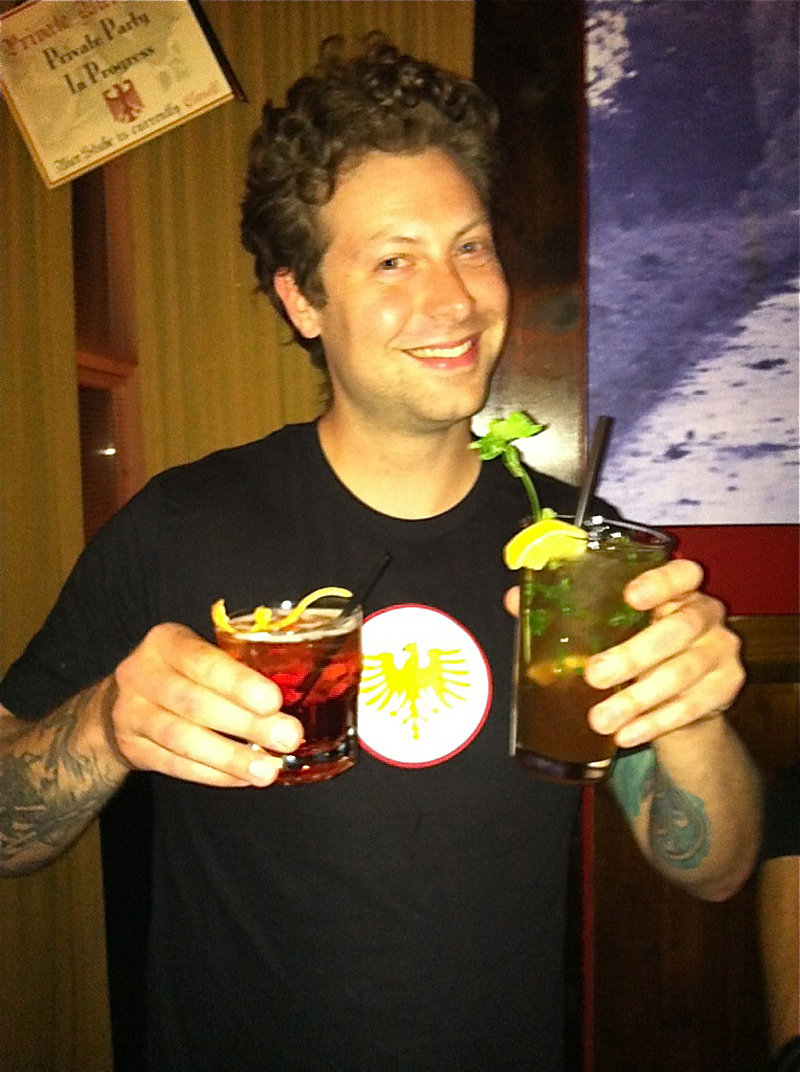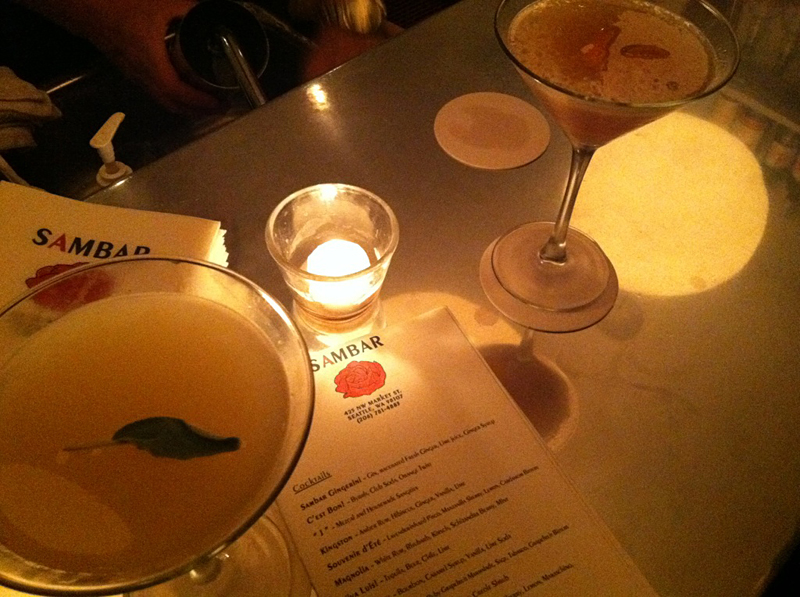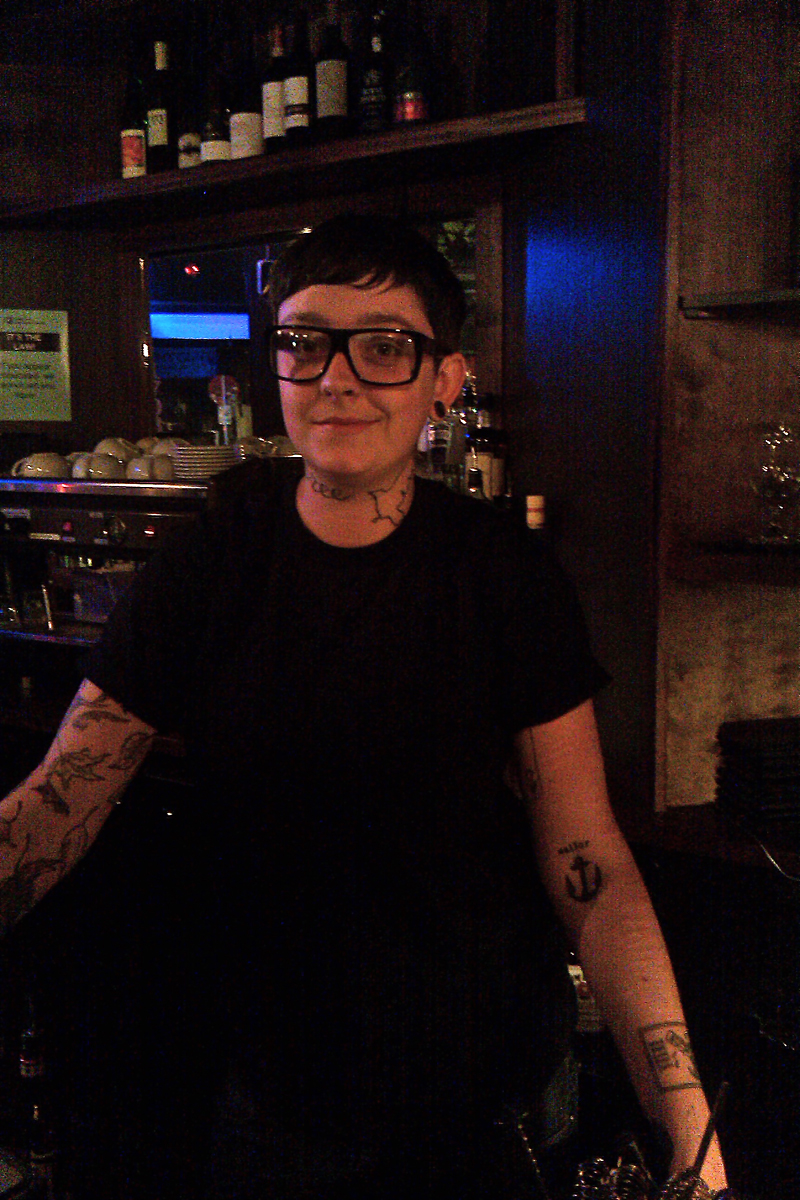Barista James from Seattle Coffee Works, intently preparing for the final round of Victrola’s single-cup brewing methods competition.This past weekend marked Seattle’s 19th year hosting Coffee Fest. Situated downtown at the Convention Center, the trade show takes up the entire fourth level and runs for three days, offering everything from foundational barista training to expert-level latte art competitions, with displays from tried-and-true coffee shop standards to the really fancy, exciting, and still-prototype espresso machines. Thinking back on the history of the coffee scene, or at least my understanding of it, it is difficult to imagine what Seattle Coffee Fest must have been like 19 editions ago. To the best of my memory, there was a time when coffee was essentially Starbucks and the number of people really educated about things like brewing methods, coffee growing regions, roasting techniques, and green buying was limited to a few fairly lonely souls. But all that seems to have changed in recent years as the coffee industry has exploded, growing from mere industry to formidable sub-culture. Check out this video, and keep in mind that this is a trade show only: i.e., you must somehow be connected to the trade in order to attend. Which is to say, all these folk are coffee folk.As one who is still mostly an outsider in the coffee community, let me share with you that it is a whole different world in there. Step through the doors of Coffee Land, and what you encounter is an entirely other language… not to mention, set of rules for creating social hierarchies. These people take their craft seriously. And it is a seriously complex craft. One which they all continually learn from and teach to one another.Manual grinder and Woodneck brewing methodThe dynamic creates a refreshing turn in such a competitive industry: specialty coffee is so artistic, rigorous, and small-business driven that it has produced a community bonded together by common concerns. For example, two of the issues I saw taken up over and over at Coffee Fest had little to do with what I expected to find at a trade show. Those were the issues of Social and Environmental care, a theme best captured by Project 7’s slogan: “Brew for a Better World.”
The old “Fair Trade” sticker seemed to have been, in many ways, left behind in favor of displays from merchants such as Mercanta: The Coffee Hunters, which offered booklets of stories and pictures from the tiny coffee farms they partner with. And the “organic” idea seems to have become so common within specialty coffees that the focus is now shifting toward things like sustainable (reusable or recycled/recyclable) “coffee cup solutions.”Casualties of War: Latte art competitions abound.This is not to overlook the fact that the five minute spiel given to me by the Bunn: Trifecta booth just about made my eyes cross, nor the fact that the only thing saving me from a mind-spinning headache at a Synesso demonstration was the mercifully comforting texture of the sample espresso. But there is, ultimately, so much more to coffee than its caffeine, or its intense nerdiness. It is an art. And a livelihood. And, a cross-cultural tradition that tangibly connects those of us here in Seattle (diving out the door this morning, espresso in hand), to those who get up in Peru today, and care for their coffee fields in hopes of sending their children to school. I find the recent Coffee World-wide encouragement for awareness of that connection to be beautiful.http://www.tokenfolkmusic.comNow! Lest anyone who has attended Coffee Fest in the past read this and be concerned that the event has become all work and no play, allow me to reassure you: the Coffee Fest after-parties (and pre-parties, and…) are still where it’s at. Although… perhaps, not fantastic for networking, due to the elaborate combination of Halloween costumes, beer, past-capacity venues, and extremely caffeinated individuals.







